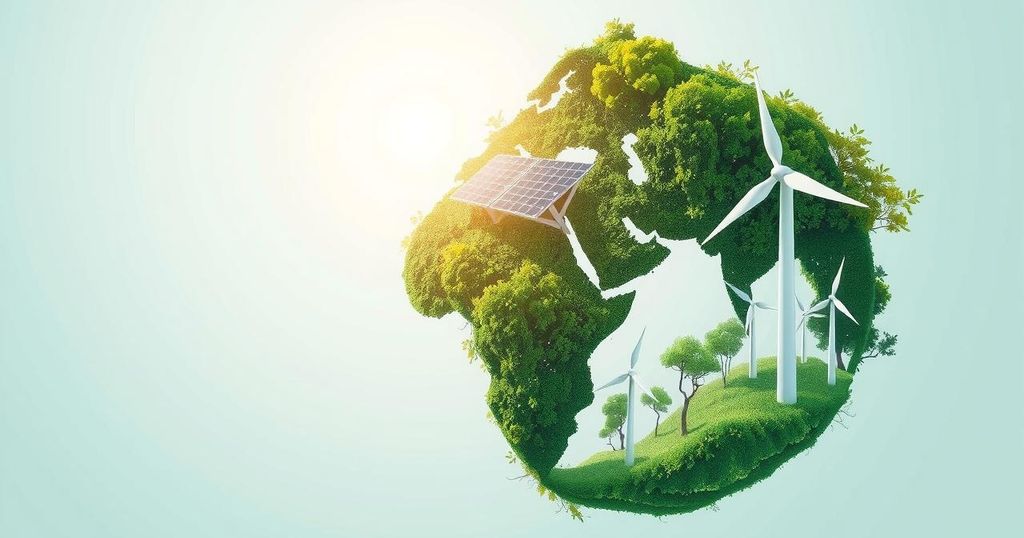UN Climate Chief Stresses Self-Interest in Addressing Global Warming

UN climate chief Simon Stiell urged nations to combat global warming through self-interest, emphasizing significant progress since the Paris Agreement despite many countries missing deadlines for climate plans. He noted economic incentives for climate action and highlighted pressing funding needs for developing countries ahead of COP30 in Brazil.
In a recent address in Brasília, Simon Stiell, the UN climate chief, emphasized the urgent need for nations to combat global warming through their self-interest, especially as the United States steps back from its leadership role. He highlighted that significant progress has been made since the Paris Agreement, yet many countries are lagging on their next set of climate plans, with a submission deadline extended to September. The upcoming COP30 climate conference in Brazil serves as a pivotal platform for these discussions.
Stiell noted the economic advantages of climate action, such as heightened economic growth, job creation, and improved public health. He pointed out that climate investment has recently reached $2 trillion, underscoring the irresistible economic incentives of transitioning to clean energy. He acknowledged that while certain nations withdraw, others are poised to take advantage of the burgeoning clean energy market.
Countries like Brazil and Britain have already submitted their climate action plans, with major emitters such as China and the European Union expected to follow suit. A UN representative indicated that over 170 nations are preparing new emissions goals with most expected to submit before the COP30 conference. In light of climate forecasts suggesting a rise of 3 degrees Celsius, Stiell reiterated that current measures must be strengthened to prevent disaster, as the safe threshold under the Paris Agreement is a mere 1.5 degrees Celsius.
The agenda from the previous COP29 saw wealthier countries commit to providing at least $300 billion annually by 2035 to support the climate initiatives of developing nations, despite their estimated need amounting to $1.3 trillion. Stiell emphasized that addressing this funding gap is not an act of charity, but rather a necessary investment to mitigate inflation arising from climate-related disasters, such as droughts and floods that have affected food prices.
Global warming remains a pressing challenge, accentuated by the retreat of significant players like the United States from proactive international climate agreements. The Paris Agreement, which aims to limit global temperature rise to well below 2 degrees Celsius, underscores the urgency of the climate crisis. The upcoming COP30 conference in Brazil will provide a venue for nations to discuss their climate strategies and commitments as they work towards their emissions reduction goals. With the impacts of climate change becoming increasingly evident, the economic case for investing in green technologies and infrastructure has never been stronger. The implications of climate change are profound, from rising sea levels to extreme weather events, necessitating urgent and collective action. The focus on self-interest emphasizes that pursuing sustainable practices not only addresses environmental concerns but also offers economic benefits, potentially creating jobs and promoting energy security.
The address by Simon Stiell at a university in Brasília reinforces the critical need for nations to embrace climate action as a matter of self-interest. As economies globally shift towards sustainable practices, the benefits of doing so—ranging from job creation to reduced health costs—are becoming increasingly apparent. However, challenges remain, particularly in securing adequate funding for developing nations to transition effectively. The upcoming COP30 conference presents an opportunity for nations to recommit to their climate goals and enhance collaborative efforts to combat the escalating climate crisis.
Original Source: www.france24.com






